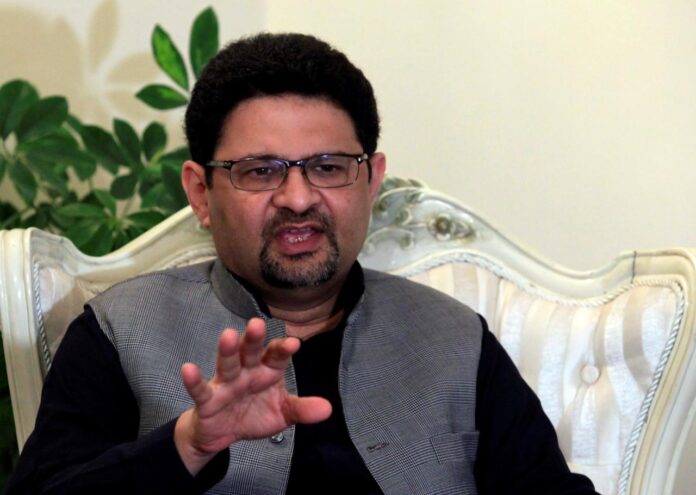ISLAMABAD: Federal Minister for Finance and Revenue Miftah in a meeting with the All Pakistan CNG Association headed by All Pakistan CNG Association (APCNGA) on Tuesday discussed the proposal for use of CNG as fuel for motor vehicles to reduce the fuel import bill and minimise carbon emissions.
In this regard, the finance minister held a meeting with a delegation headed by APCNGA Group Leader Ghiyas Abdullah Paracha at the Finance Division wherein Oil and Gas Regulatory Authority (OGRA) chairman, Federal Board of Revenue (FBR) chairman and senior officers from the Finance Division were present.
Paracha said that balance of payment issues and this issue can be resolved within no time with the promotion and use of CNG as an alternate fuel for the motor vehicles. “Similarly, foreign remittance can be saved by approximately $2.1 billion dollar per annum on account of fuel import bill while a 40-50% cut in public transport fares is also possible and that the circular debt can also be reduced by Rs1,500 billion besides minimising environmental pollution by ensuring gigantic reduction in the carbon emissions with the use of eco-friendly CNG as a fuel for motor vehicles,” he emphasised.
Furthermore, the APCNGA leader said that the revival and expansion of the CNG sector can generate thousands of new job opportunities.
During the course of this meeting, Ghiyas Paracha also requested the finance minister to allow and facilitate the CNG industry to bring LNG at its own risk and experience to meet the needs of the CNG sector.
He requested to restore the gas supply to CNG sector and immediately open CNG stations of Punjab which are facing closure since the last seven months in a bid to save the public from the impact of rising oil prices in the international oil market
“Despite high prices of fuel in the international oil market, the CNG is still a cheaper fuel and offered to provide 43percent and 55pc cheaper eco-friendly fuel to the motor vehicles in comparison with the price of petrol and diesel respectively in order to provide immediate relief to the public,“ said Paracha.
Paracha said that currently the CNG sector is getting the gas from the government at an expansive price ranging between $13 per Million British Thermal Unit (MMBTU) to $20/MMBTU while the government is supplying the gas to all other sectors at the rate ranging between $3/MMBTU to $8/MMBTU.
It is pertinent to mention that total 2300 CNG Stations are established in the country and out of which 1100 CNG Stations are located in Punjab, 600 CNG Stations are situated in Sindh, 575 CNG Stations CNG Stations are operating in Khyber Pakhtunkhwa and 25 CNG Stations are have been established in Balochistan province. At present, approximately 50pc of the total CNG Stations of Punjab Province have suspended their operation due to non-availability of gas. Similarly, Rs150 billion worth local investment so far made in developing the CNG kits has been facing serious danger due to closure of CNG Stations and non-availability of gas as a fuel for motor vehicles. Furthermore, direct and indirect employment in the CNG sector is 5.1 lakh and total gas consumption required by the entire CNG sector is 400 Million Cubic Feet per Day.
Moreover, the delegation apprised the finance minister about issues being faced by the CNG sector in Pakistan, especially those related to taxes.
Miftah Ismail assured the delegation that the current government will resolve their issues and provide maximum support to them, further adding that he should be made aware of the obstacles and who created the hurdles in this regard.




